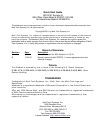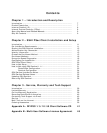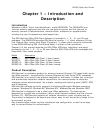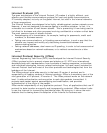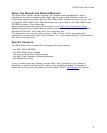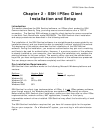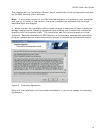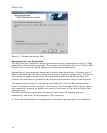PN 82013151
8
Internet Protocol (IP)
The open architecture of the Internet Protocol (IP) makes it a highly efficient, cost-
effective and flexible communications protocol for local and global communications.
IP is widely adopted, not only on the global Internet, but also in the internal networks
of large corporations.
The Internet Protocol was designed to be highly reliable against random network errors.
However, it was not designed to be secure against a malicious attacker. In fact, it is
vulnerable to a number of well-known attacks. This is preventing it from being used to
its fullest for business and other purposes involving confidential or mission-critical data.
The most common types of attacks include:
• Eavesdropping on a transmission, for example, looking for passwords, credit card
numbers, or business secrets.
• Taking over communications, or hijacking communications, in such a way that the
attacker can inspect and modify any data being transmitted between the
communicating parties.
• Faking network addresses, also known as IP spoofing, in order to fool access control
mechanisms based on network addresses, or to redirect connections to a fake
server.
Internet Protocol Security (IPSec)
Internet Engineering Task Force (IETF) has developed the Internet Protocol Security
(IPSec) protocol suite to prevent misuse and attacks on IP. IETF is an international
standards body with representation from hundreds of leading companies, universities,
and individuals developing Internet-related technologies. Its track record includes the
Internet Protocol itself and most of the other protocols and technologies that form the
backbone of the Internet.
The IPSec protocol suite adds security to the basic IP version 4 protocol and is
supported by all leading vendors of Internet products. IPSec is a mandatory part of the
next generation of IP protocol, IP version 6. The IPSec protocol works on the network
level. It adds authentication and encryption to each data packets transmitted. It
protects each packet against eavesdropping and modification, and provides
authentication of the origin of the packet.
IPSec works independently of any application protocol. Thus, all applications that use IP
protocol for data transfer are equally and transparently protected. IPSec makes it safe
to use the Internet for transmitting confidential data. By doing so, it solves the main
obstacle that is slowing down the adoption of the Internet for business use.





